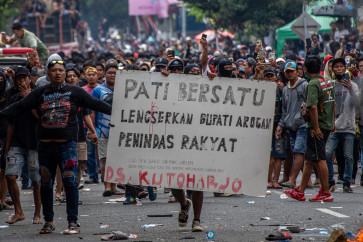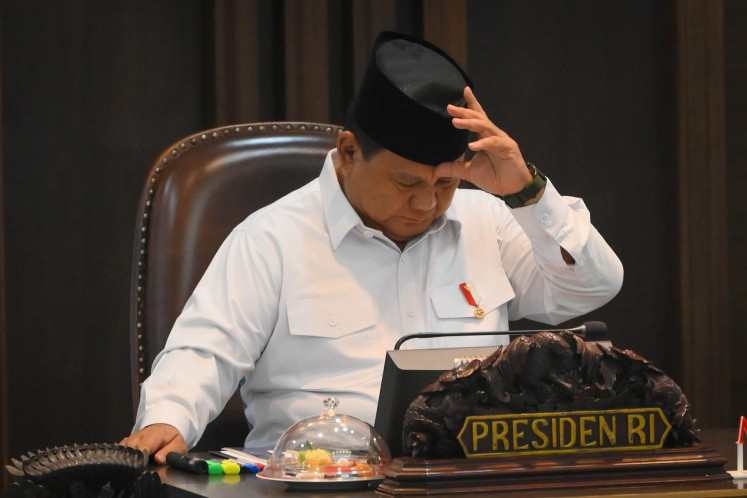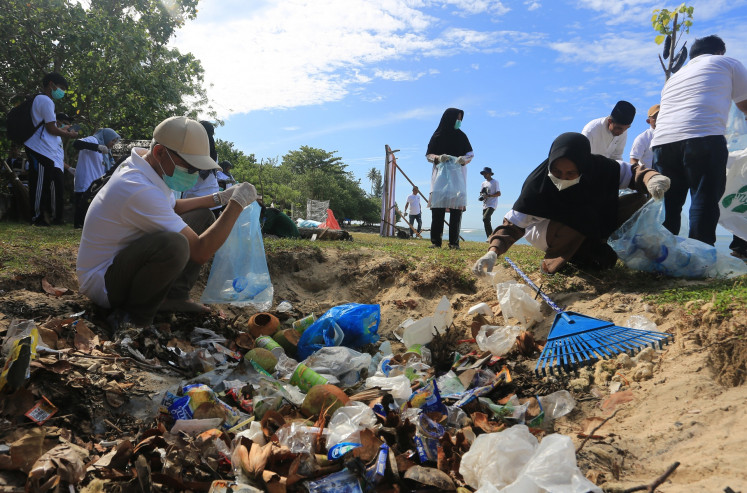Popular Reads
Top Results
Can't find what you're looking for?
View all search resultsPopular Reads
Top Results
Can't find what you're looking for?
View all search resultsReligious intolerance thriving among school teachers: Survey
The latest study by the Center for the Study of Islam and Society (PPIM) in collaboration with Syarif Hidayatullah State Islamic University (UIN) has found that the majority of Muslim teachers across the country are religiously intolerant and prone to radicalism
Change text size
Gift Premium Articles
to Anyone
T
he latest study by the Center for the Study of Islam and Society (PPIM) in collaboration with Syarif Hidayatullah State Islamic University (UIN) has found that the majority of Muslim teachers across the country are religiously intolerant and prone to radicalism.
The survey defined religious intolerance as the tendency to reject people who hold differing spiritual beliefs. Meanwhile, radicalism was described as the adoption of extremist worldviews and antidemocratic principles to influence sociopolitical change.
The survey, involving 2,237 teachers in public and private schools — from kindergartens to high schools — in 767 cities and regencies conducted from Aug. 6 to Sept. 6, found that more than 50 percent of respondents held intolerant views of people with beliefs different than their own.
UIN Syarif Hidayatullah lecturers and researchers Saiful Umam and Yunita Faela Nisa broke down their findings into two major categories: intolerant opinions and intolerant intentions.
In the intolerant opinion category, the survey found 56 percent of respondents disagreed that non-Muslims should be allowed to open religious schools in their neighborhoods. In addition, 21 percent disagreed that neighbors of differing beliefs should be allowed to hold religious ceremonies in their neighborhoods.
Furthermore, in the intolerant intention category, the survey found 29 percent would sign a petition rejecting an education agency head candidate who had differing beliefs, if given the opportunity. In addition, 34 percent said they would sign a petition rejecting a religious non-Muslim school being established in their neighborhood, if given the opportunity to do so.
“This study has revealed a troubling precedent that came as a shock even to us, the researchers,” Saiful said on Tuesday, adding that he expected the research to act as a wake-up call to stakeholders who had not taken the issue of rising intolerance in schools seriously.
Radical Islamism and affiliation with Muslim organizations were among the contributing factors of rising religious intolerance among teachers across the country, the study cited.
“Radical Islamism, an extremist ideology that basically sees Islam as the center of everything, has been found thriving among exclusively Muslim circles,” Yunita said.
However, Indonesian Teachers Union Federation secretary-general Heru Purnomo criticized the survey’s exclusion of civic education (PKN) teachers from its respondents.
“By not bothering to ask the opinions of citizenship education teachers who regularly teach their students the concept of pluralism, the study has failed to present an accurate picture of intolerance in schools,” Heru said, arguing the inclusion of PKN teachers would have contributed to more diverse findings.










